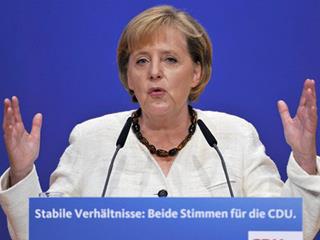‘We don’t have to do everything in Brussels’, German Chancellor Angela Merkel said on German TV mid-August, ‘we can also consider whether we can give something back. We will have this discussion after the Bundestag elections in September’. She became the latest EU leader to raise the prospect of shifting powers from the European institutions back to national governments. In June in a letter to the Dutch parliament, Prime Minister Rutte, a Merkel ally among EU leaders, also expressed the desire to rein in the scope of EU law-making and claimed that the era of pursuing ‘ever closer union’ is over. The Dutch government will resist a further harmonising of national security systems, working conditions and media regulation. In July the UK government published in its ‘balance of competences review’ to assess the role and extent of EU lawmaking before renegotiating the terms of the UK’s EU membership ahead of a referendum. Opting out of EU legislation on employment and social affairs is on the UK wish list; alongside special treatment of the City of London’s financial institutions. Mats Persson, director of the influential think-tank Open Europe, gave his opinion that Merkel sees the UK as key to ensuring EU really works for trade and entrepreneurship: “we constantly hear from Berlin that Merkel sees Cameron as one of the few EU leaders who genuinely understand the need for Europe up its game in the global market place. So Merkel may try to use her next mandate to kill two birds with one stone – keep the UK in the EU, and achieve pro-competitiveness reforms.” In any case, Merkel, on the way to a third term as Chancellor, is likely to encourage other EU countries hoping to repatriate powers to the national level. ‘It opens a window of opportunity for EU reform’, Mats Persson commented.
THE WEEK THAT WAS... (August 19, 2013)
EBR Chief-editor’s Monday Morning Column. This week N. Peter Kramer writes about "Angela Merkel ‘opens window for EU reform’"

In any case, Merkel, on the way to a third term as Chancellor, is likely to encourage other EU countries hoping to repatriate powers to the national level. ‘It opens a window of opportunity for EU reform’, Mats Persson commented.



 By: N. Peter Kramer
By: N. Peter Kramer

